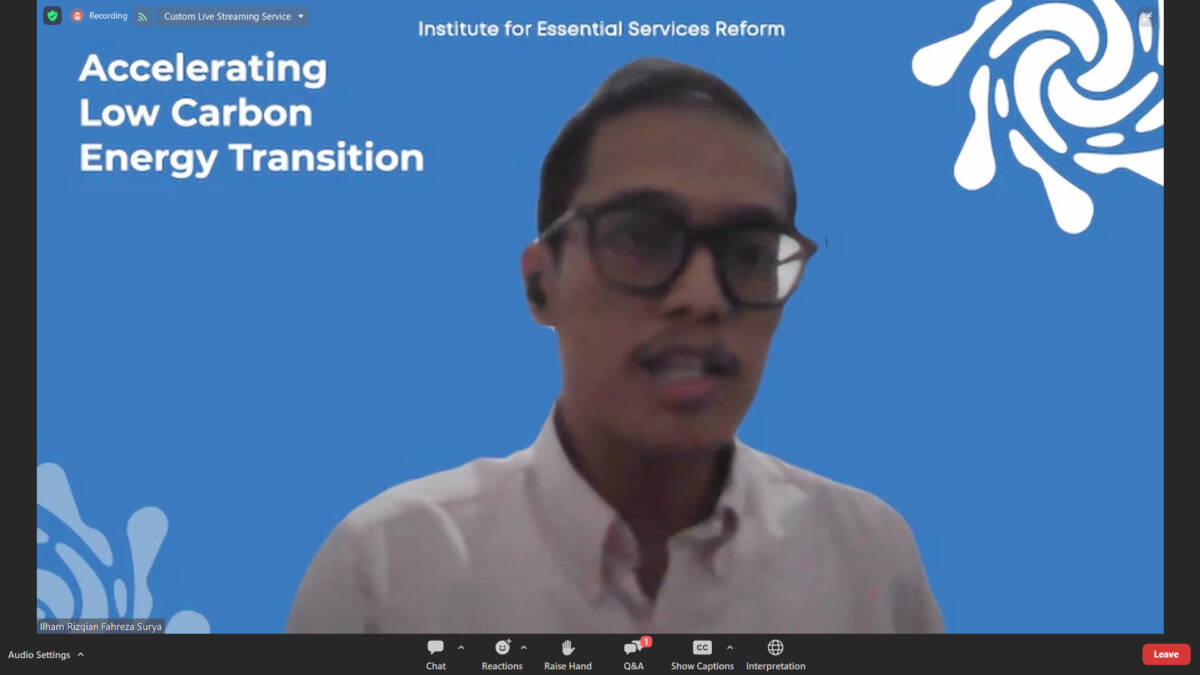Jakarta, February 29, 2024 – The aspect of justice in energy transition is closely tied to community involvement in the process, particularly in preparing communities in coal-producing areas. Civil society organizations, as entities that closely engage with both the community and the government, play a significant role in urging the government to adopt participatory policies and integrate equitable principles. Additionally, they help in enhancing the community’s capacity by providing skills and knowledge, enabling them to effectively articulate their interests.
Ilham Surya, an Environmental Policy Analyst at the Institute for Essential Services Reform (IESR), highlighted that the income of coal-producing regions in Indonesia heavily relies on the coal industry. He pointed out that the lack of economic diversification in these regions could lead to economic disruptions if there’s a decrease in coal demand due to the global energy transition, especially if no measures are taken to mitigate this change.
“Indonesia is practicing distributive justice concerning fossil energy by providing access to electricity from coal and offering some subsidies to maintain affordability. The government should extend this distributive justice to the adoption of renewable energy during this global energy transition. Furthermore, Indonesia has ratified the Paris Agreement to contribute to emission reduction, including emissions from the energy sector,” Ilham explained during the webinar titled “Cross-country reflections on coal and just transitions in Colombia, South Africa, and Indonesia,” organized by the Stockholm Environment Institute (SEI) in collaboration with IESR.
Ilham emphasized the government’s promotion of the concept of energy transition, which he finds still confusing. On one hand, Indonesia receives various funding for energy transitions such as the Energy Transition Mechanism (ETM) and the Just Energy Transition Partnership (JETP). On the other hand, Indonesia appears to be permitting the construction of coal-fired power plants for industrial purposes.
According to Ilham, civil society organizations need to establish intensive discussion spaces and enhance the relevance of energy transition to the community to ensure that more people are exposed to energy transition issues.
Juliana Peña Niño, Senior Staff at the National Resource Governance Institute, revealed that the coal-producing regions of La Guajira and Cesar in Colombia are heavily reliant on royalties from the coal industry. She stated that nearly 50% of the region’s revenue comes from coal royalties, leading to a less diversified economy.
“The government must utilize these royalties to channel investments towards economic diversification. The challenge lies in the fact that local governments lack the capacity to access these resources and develop alternative economic projects,” she elaborated.
Furthermore, when discussing the energy transition in South Africa, Muhammed Patel, Senior Economist at Trade and Industrial Policy Strategies, considers the bottom-up approach as the ideal method to encourage community participation. However, implementing this approach tends to be challenging due to the prevailing top-down approach in South Africa.
“A lot of energy policy decisions can be made at a national level, but local governments sort of have to bear the costs,” added Patel. “Moreover, local governments often face capacity constraints. Even struggling to provide basic services, often private sector stakeholders take over the government.”
In South Africa, the civil society movement has also brought attention to the issue of energy transition through various means, such as pursuing legal cases concerning air pollution from factories in South Africa, lobbying the government, and engaging with the community.
“But those are some of the dynamics where there’s a strong voice for justice, strong backlash against injustice, especially when it concerns vulnerable communities and heavy industrial operations. But they don’t get a lot of support. So they often are flying the flag on the triangle,” remarked Patel.

